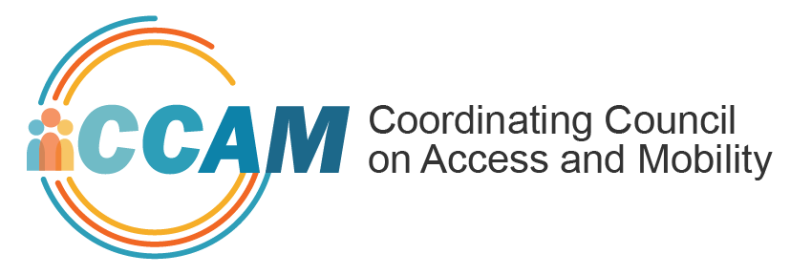Coordinating Council on Access and Mobility (CCAM)
Transportation touches almost all part of peoples’ lives. This fact is recognized by the many federally funded programs that fund transportation services in one way or another. In 2014, the Government Accountability Office (GAO) identified 80 of these federal programs spread among 8 federal agencies.
The federal Coordinating Council on Access and Mobility (CCAM), formed in 2004, is tasked with coordinating transportation across federal agencies.
This video highlights CCAM’s importance and the essential work that its members have already completed. Watch to learn about the history of CCAM, the overarching mission, and what CCAM has already done across the country.
Rides to Recovery, a grantee of the National Center for Mobility Management, is featured inside! Learn more about their work with patients who need transportation to Substance Use Disorder care here.
What is CCAM?
The Coordinating Council on Access and Mobility (CCAM) is an interagency partnership established in 2004 by Executive Order 13330 to coordinate the efforts of the federal agencies that fund transportation services for targeted populations. You can find more about its history and objectives on the U.S. DOT CCAM webpage. View the 2023-2026 CCAM Strategic Plan.
The Secretary of Transportation chairs the CCAM, and 10 additional Federal department and agency leaders form the remaining CCAM membership. The 11 CCAM members include the following:
- Department of Agriculture
- Department of Education
- Department of Health and Human Services
- Department of Housing and Urban Development
- Department of the Interior
- Department of Justice
- Department of Labor
- Department of Transportation
- Department of Veterans Affairs
- National Council on Disability
- Social Security Administration

